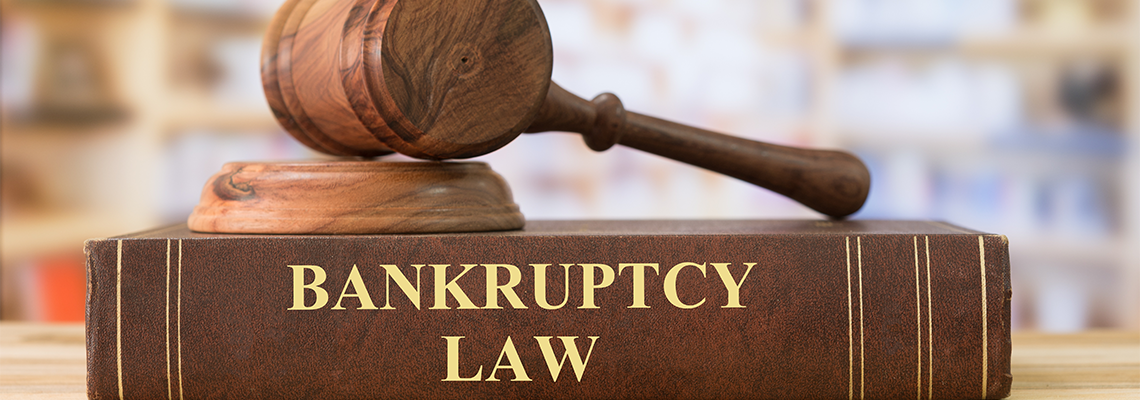
WILL I LOSE MY RETIREMENT ACCOUNTS
IF I FILE FOR BANKRUPTCY?
Although bankruptcy filings were down due to pandemic-related stimulus payments and extremely low interest rates, more than 21,000 individuals and businesses filed for bankruptcy in Georgia in 2021. The state is consistently ranked among the top three states in bankruptcy filings per capita. Particularly for the 20% of filers nationwide who are ages 55 and older, what happens to retirement accounts in bankruptcy is a major concern.
If you have saved for retirement but find yourself otherwise unable to keep up with your debt, you are smart to consider what happens to your retirement income if you file for Chapter 7 bankruptcy or Chapter 13 bankruptcy relief. You are also wise to talk to Pytte Law about your particular situation.
If you live in Savannah, Hinesville, Ludowici, Richmond Hill, Statesboro, or anywhere else in Georgia, reach out to me to start exploring your options for bankruptcy and retirement. We’ll get started on a path forward for you and your finances.
Are Retirement Accounts Protected in Bankruptcy?
Most retirement accounts are fully protected in bankruptcy, under both federal and Georgia exemptions. This includes 401(k), 401(b), Keoghs, profit-sharing, money-purchase, and defined-benefit plans. It also includes traditional and Roth IRAs, although protection is currently capped at $1,512,350 per person under federal and Georgia exemptions. That means the bankruptcy trustee could use amounts over the cap to repay creditors.
Social Security benefits are also protected in bankruptcy unless your monthly or lump-sum payments are commingled in a bank account with other funds. In advance of filing for bankruptcy, you should talk to your bankruptcy attorney about taking any steps necessary to protect these benefits.
There are other retirement benefits protected in bankruptcy, including military and government pension accounts. Again, it’s best to consult with your attorney to discuss your specific benefits if you are considering bankruptcy.
When Might My Retirement
Account Not Be Protected?
The preceding types of retirement accounts fall under the Employee Retirement Income Security Act (ERISA) which protects individuals who voluntarily contribute to retirement plans, usually through an employer. However, not everything you might be counting on to use in retirement is protected. Savings accounts, stock-option plans, and other investment accounts are not protected unless they’re ERISA-qualified.
You should also know that the federal and state cap on protected IRAs is updated every three years. The current limit of $1,512,350 is valid for bankruptcy cases filed between April 1, 2022, and April 1, 2025.
What If I’m Drawing My Retirement Benefits Now?
If you are already receiving retirement benefits, it is now considered income which is calculated in Chapter 7 and Chapter 13 bankruptcy. Chapter 7 bankruptcy, which fully discharges your debt, is only an option for people earning under a certain amount of money per year. Although income does not include the Social Security benefits you are receiving, it does include other retirement benefits.
In Chapter 13 bankruptcy, your debt is restructured, and you repay it over a three- to five-year period using all disposable income. That is any income you receive above and beyond what you need to pay your basic living expenses during the repayment period, which includes any retirement income you’re drawing on (except for Social Security).
How Pytte Law Can Help
How bankruptcy affects your hard-earned retirement—whether you are saving it for the future or drawing on it now—is an important consideration when contemplating bankruptcy. However, since most retirement is protected in bankruptcy, you should probably avoid the temptation to cash out early to repay debt, unless doing so would give you the same fresh start as bankruptcy. These are crucial decisions for you and your future, not ones you should make without the benefit of talking to a bankruptcy attorney first. There is no reason why you should make such choices without fully understanding all the implications.
At Pytte Law, I am here to provide you with the guidance and information you need to make fully informed decisions. If you live in or around Savannah, Georgia, as well as Chatham County, Liberty County, Bryan County, Effingham County, and the rest of the state, call my office to schedule a consultation.